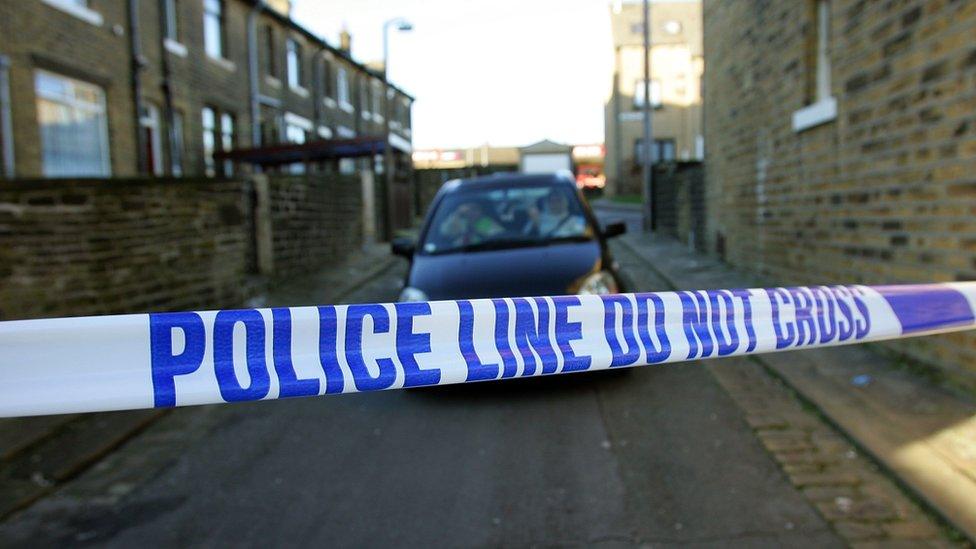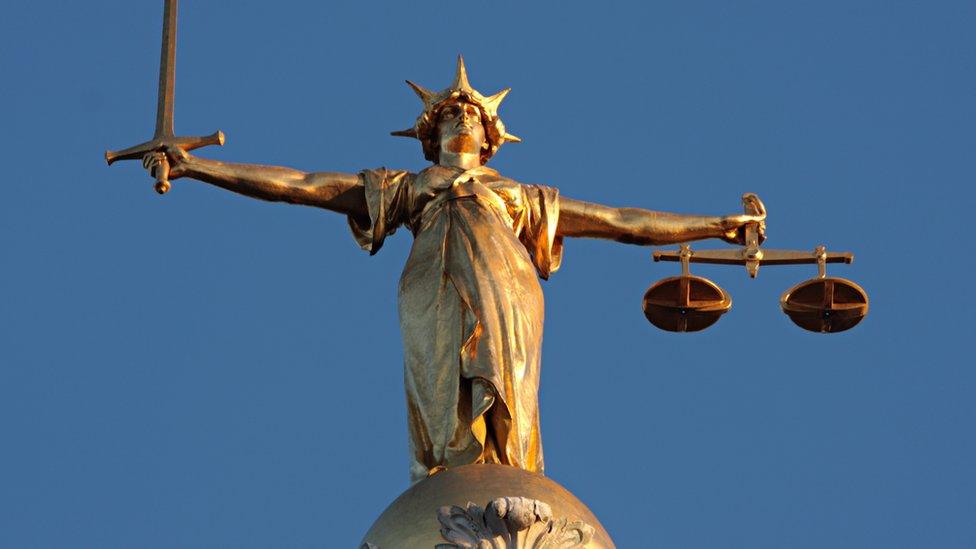Coronavirus: 'Lower priority' crime cases put on hold
- Published

Suspected fraudsters and gangsters should not be charged during the coronavirus outbreak to avoid "clogging up" courts, new guidance recommends.
Cases involving serious organised crime and major fraud are among those dubbed "lower priority".
The guidance will apply to courts in England and Wales for several months.
The National Police Chiefs' Council and Crown Prosecution Service document, external also advises that some people charged be released on bail for long periods.
Cases in this category include certain types of domestic abuse, serious violence, and terrorism where there are no national security considerations.
The aim is "to allow the current crisis to pass" and is likely to be needed until social distancing restrictions, imposed due to the virus, are lifted.
But prosecutors say "essential work to deliver justice continues" and the public should report all offences.
'Unprecedented crisis'
New jury trials have already been halted in all parts of the UK.
The seven-page guidance, titled "Interim CPS Charging Protocol", says the criminal justice system is facing an "unprecedented crisis" with courts unable to start any new jury or summary trials.
Most current trials have been stopped, it says, because of problems over the attendance of witnesses, defendants, lawyers and jurors.
"It follows that there must be careful consideration of what new offences are fed into the system and how those offences are progressed," the guidance says.
It suggests placing offences into one of three categories, according to how quickly criminal proceedings have to be brought, with priority given to cases where a suspect needs to be remanded into custody.
'High priority' cases
These cases, classed as "immediate", include murder, serious domestic abuse where there is a risk of further offending, serous sexual offences, robbery, offences under the Terrorism Act and violent disorder.
Attacks on emergency workers, frauds related to Covid-19 and other crimes linked to the virus would also be passed to the courts immediately.
The next type of case, referred to as "high priority", would involve the suspect not appearing in court for up to eight weeks after being charged.
"This will hopefully allow the current crisis to have passed and thereafter enable a structured timetable for future hearings," the guidance says.
Court proceedings in the last category, known as "other cases", would be delayed.

They include criminal damage, benefit fraud, common assault and lower-level road traffic offences - as well as serious fraud and large-scale serious organised crime cases.
The document says fraud and organised crime require "lengthy investigations and consideration of disclosure", adding that they are "likely to clog up the court system if charged and actioned at this stage".
Sue Hemming, CPS legal director said: "It is right we should try to prioritise the most serious cases to make sure dangerous offenders are dealt with quickly. However, this does not mean crimes will go unpunished and all offences, including fraud and organised crime should be reported in the usual way."